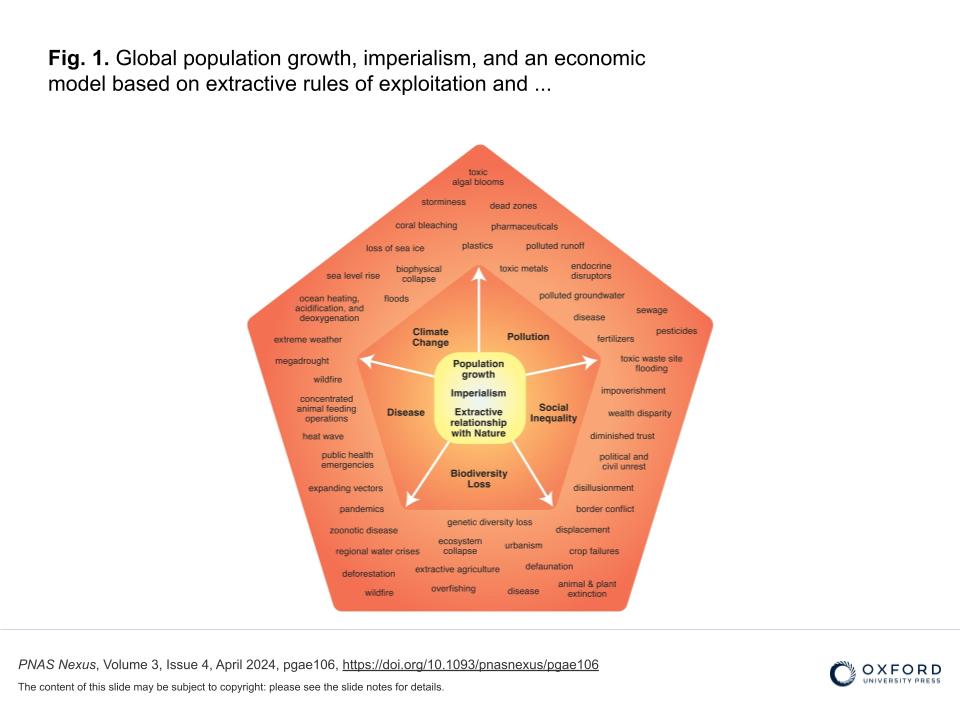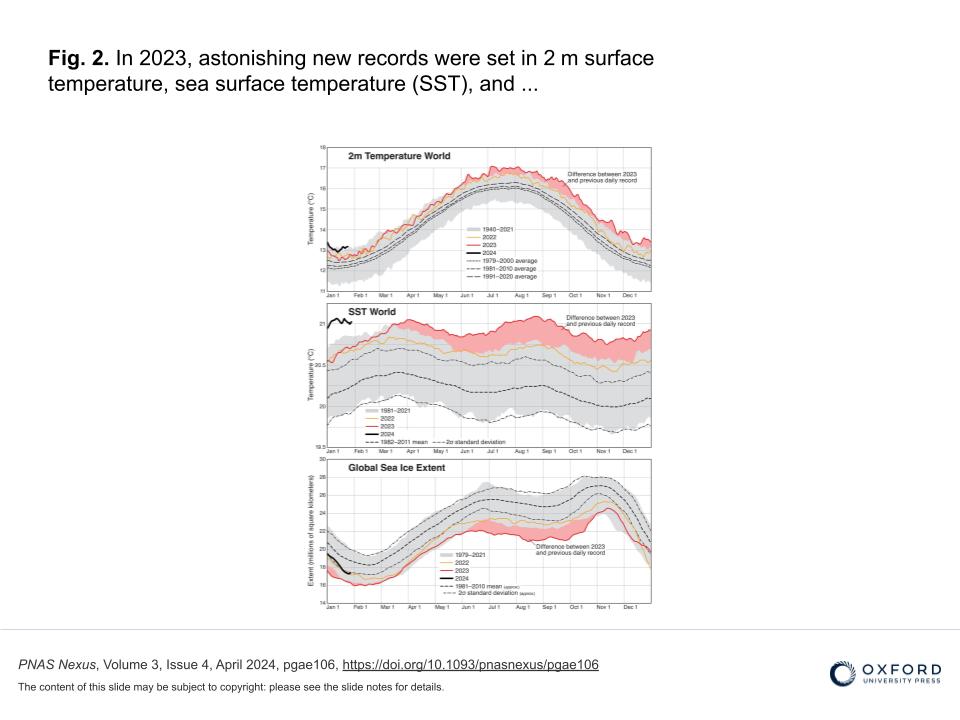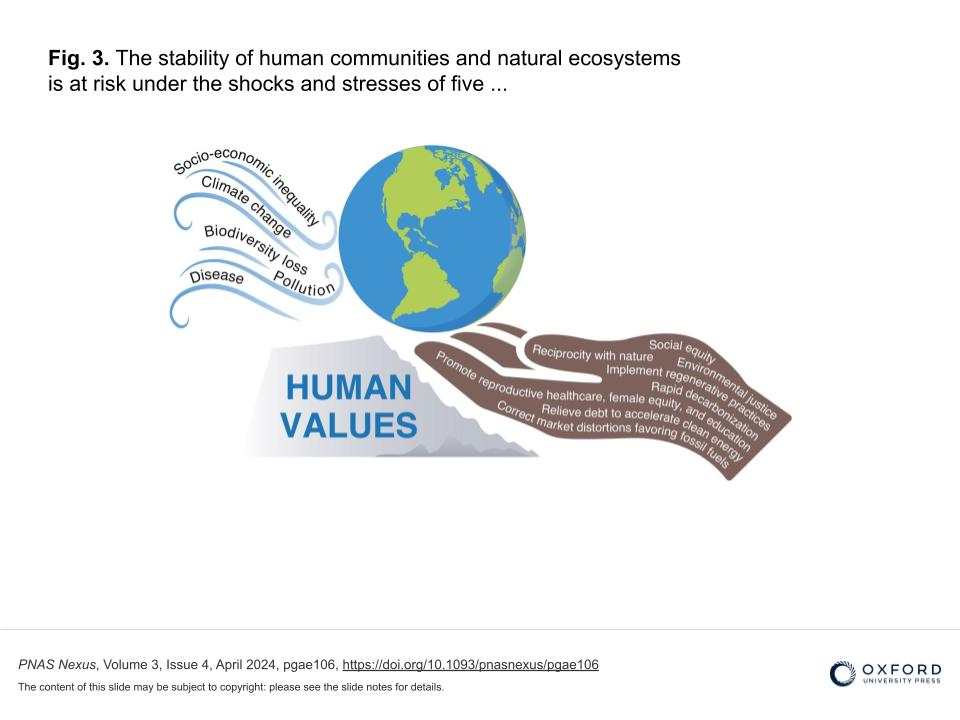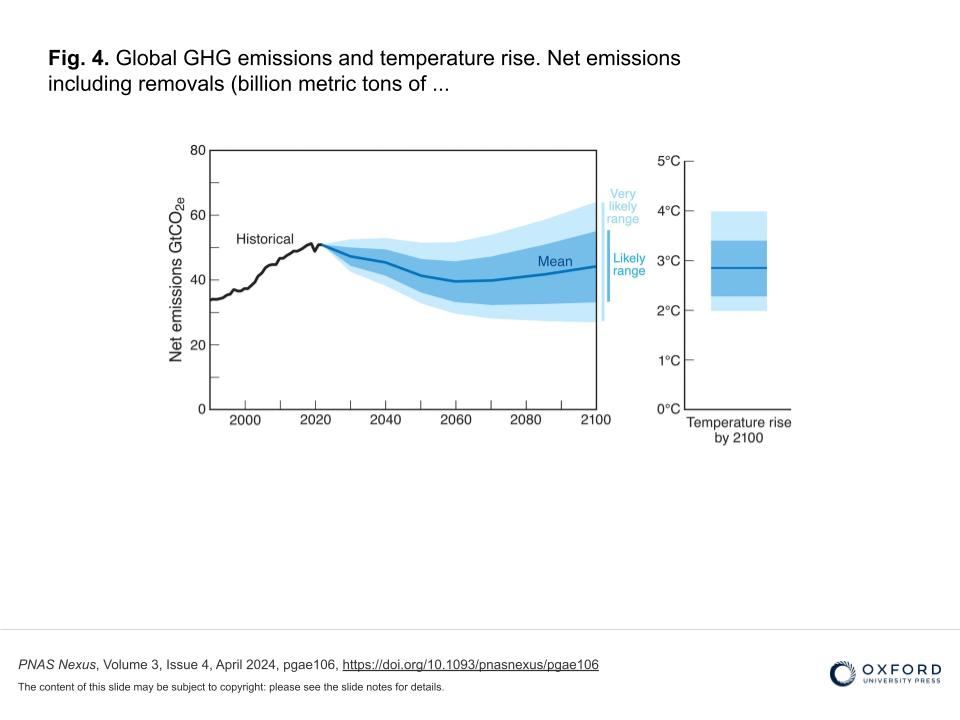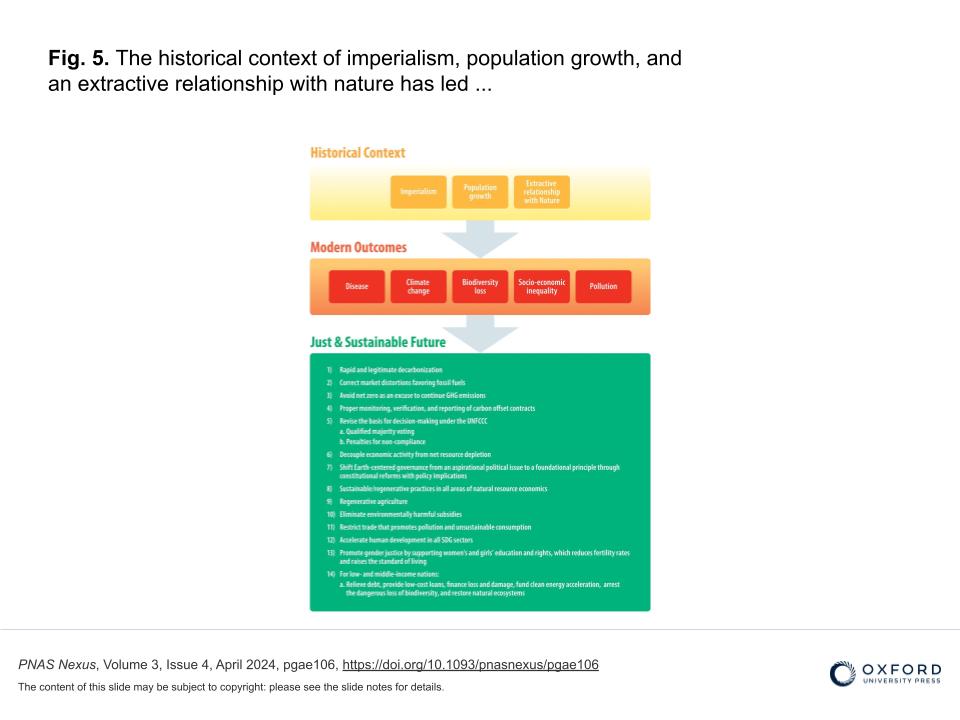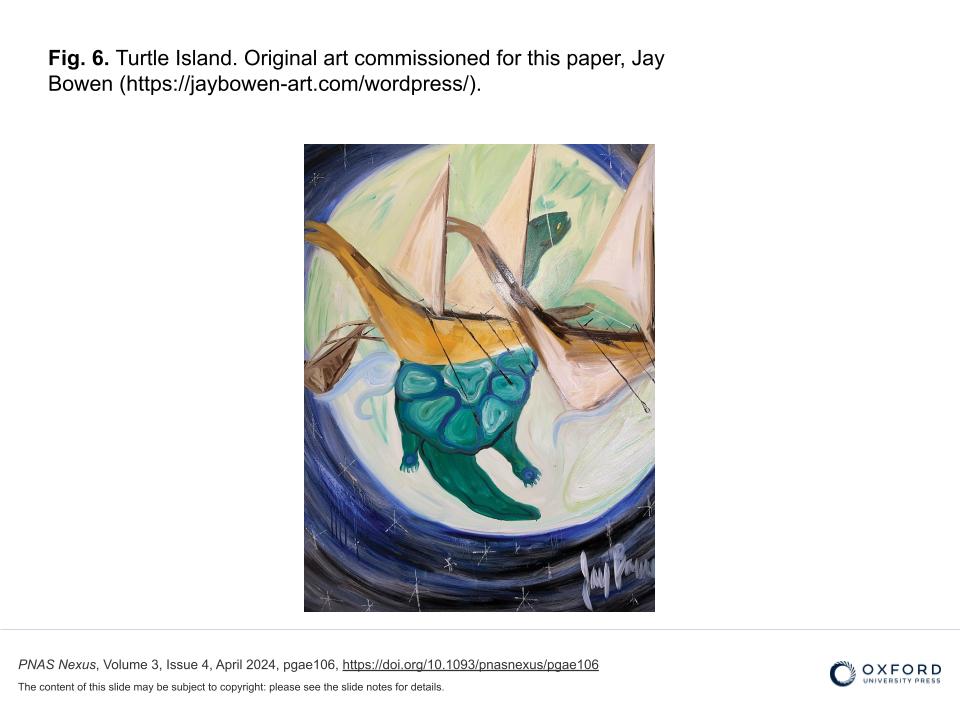A Call for Global Cultural Change to Shift Civilization and Save the Planet
In a review published April 2, 2024, University of Hawaii atmospheric scientist Charles Fletcher, UWB professor Phoebe Barnard and a team of eminent western and indigenous scientists, historians, futurists, and other global colleagues consider the causes of and solutions to multiple converging and interwoven crises on Earth, including climate change, ecological destruction, disease, pollution, and socio-economic inequality.
The review, published in the American Association for the Advancement of Science Journal PNAS Nexus, summarizes the grave threats facing the planet but rejects a “doom and gloom” philosophy. Instead, the authors argue, the threats should motivate swift and substantial actions to shift civilization. According to the authors, industrial capitalism and its focus on wealth and profit rather than true sustainability and healthy relationships with the planet and with each other are major impediments to decarbonization, conserving natural resources, and ensuring social equity. Therefore, the authors argue, governments should enforce radical, immediate cuts in fossil fuel use, eliminate environmentally harmful subsidies, and restrict trade that generates pollution or unsustainable consumption.
Following Indigenous principles of land management, the authors argue, governments must build a new era of reciprocity and kinship with nature and decouple economic activity from net resource depletion. According to the authors, it is critical to support gender justice by supporting women’s and girls’ education and rights, which reduces fertility rates and raises the standard of living. The authors call for a global cultural shift in values, aided by education, robust policy, economic incentives, cross-sector partnerships, community empowerment, corporate accountability, technological innovation, leadership, and cultural narratives delivered through art and media.
According to the authors, humanity must stop treating its major crises as isolated challenges, and instead establish a systemic response based on kinship with nature that recognizes our metacrisis as multiple symptoms of ecological overshoot, and recognizes Earth as our lifeboat in the cosmic sea of space.
